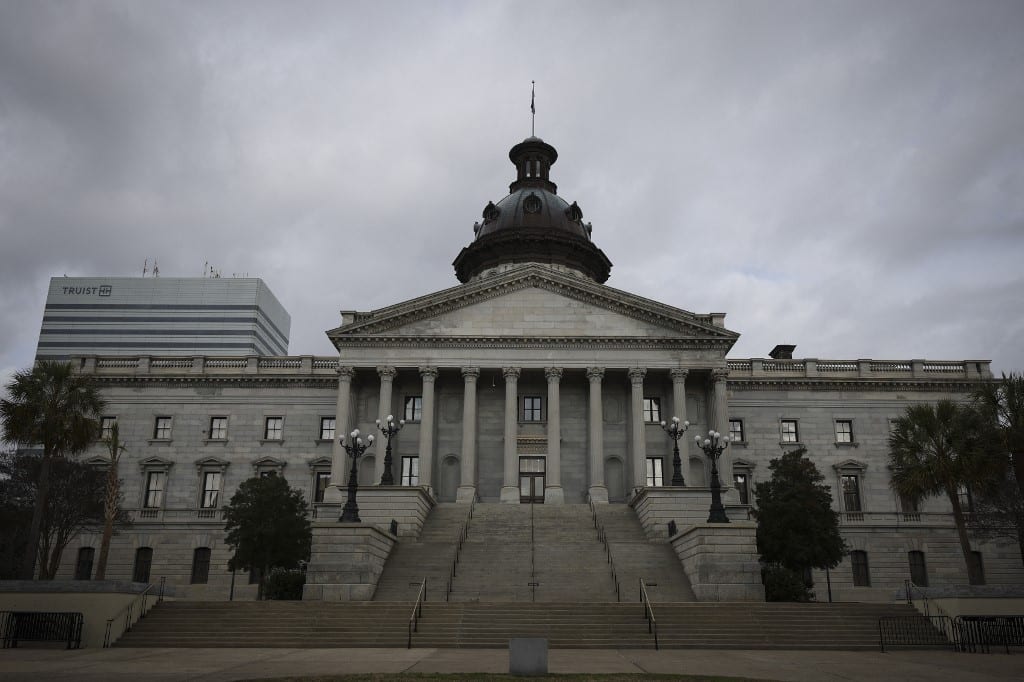
A sports betting bill is gaining traction in the South Carolina legislature and is closer than ever to passing, but the governor has vowed to veto the measure should it reach his desk.
Border Jealousy
States that have been traditionally opposed to gambling often soften their respective stances when neighboring states allow it. Such is now the case with South Carolina, as its residents routinely flee to bordering North Carolina to make their mobile sports bets ever since the Tar Heel State launched its online sports betting industry in March 2024.
But it is not only Representative Chris Murphy’s sports betting bill, HB 3625, that was recently heard by the House Ways and Means Committee’s Revenue Policy Subcommittee, but also a bill on skill-based competitions, as well as another regarding land-based casinos.
Although the committee did not take a vote on Murphy’s bill, known as the South Carolina Sports Wagering Act, the chairman, Representative Bruce Bannister, said there were several amendments that would have to be considered before any further action could be taken.
“If we’re going to do anything, we’ll reconvene and take action on the bills and amendments at that time,” Bannister said.
“It’s a No-Brainer”
The impetus driving a sports betting bill in a market whose only form of legal gambling is a state lottery is the number of South Carolinians driving to adjacent North Carolina to make a bet after their northern neighbors launched sports betting a little over a year ago.
“It’s a no-brainer,” argued House Minority Leader Todd Rutherford. “We shouldn’t have to make people drive up to the border to try to get as close to this gate or change their VPN. So, they’re out there appearing to look like they’re in another state who are already doing it. We recognize that we need to get the tax revenue.”
And getting the revenue is the crux of the matter, as any moral objections against sports betting have long since dissipated in most jurisdictions due to it becoming so mainstream and now available in 39 states, including Missouri, which will launch their mobile and retail sports betting markets later this year.
However, concern about problem gambling is the main objection and remains so in South Carolina by lawmakers opposing it.
Gov Not on Board
South Carolina Governor Henry McMaster has made his opinion crystal clear on gambling of any form, and, needless to say, he’s not a fan. Should the South Carolina Sports Wagering Act be passed by the legislature, he has voiced his opposition. “Gambling is bad for our culture,” he said. “It’s not a part of our heritage, and there is a better way to make money to give [people] jobs.”
However, even if McMaster, who will hold the reins of power in the corner office until 2026 and is ineligible to run for reelection due to term limits, does veto the bill, the legislature can override the veto and pass the measure on its own.
According to Michelle McGregor of the Sports Betting Alliance, there is a growing number of Palmetto State residents who want to be able to legally gamble on sports. “[Approximately] 70% of South Carolinians support legalized sports wagering, believing that adults in this age should be allowed to bet on sports as a form of entertainment,” said McGregor.
HB 3625, as presently constituted, would assess a 12.5% tax on sportsbook revenues and would allow anyone 18 or older to bet. Amendments are anticipated, and more discussion will be heard before the end of the session.








